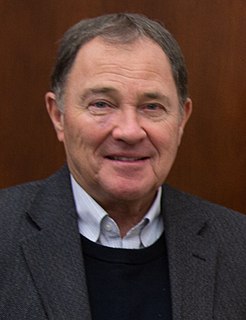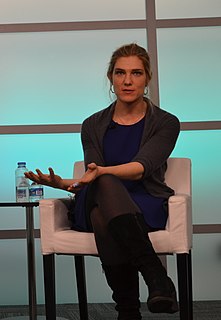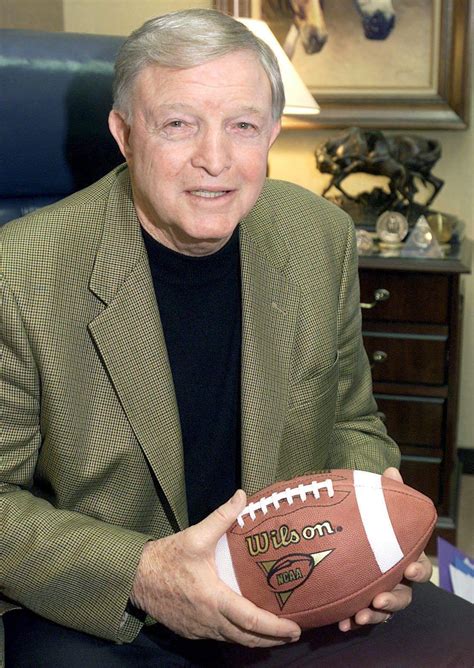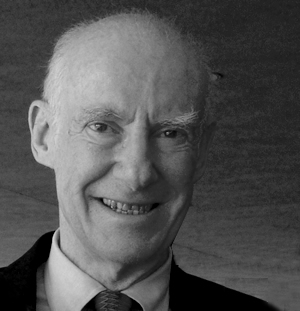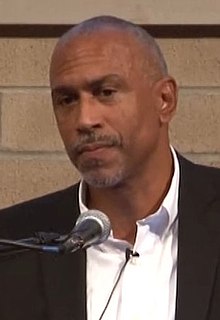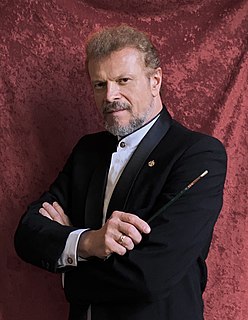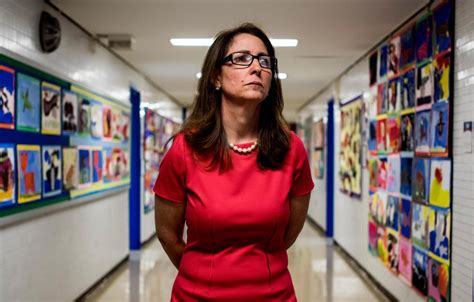Top 1200 Teachers Learning From Students Quotes & Sayings
Explore popular Teachers Learning From Students quotes.
Last updated on April 14, 2025.
Online education, then, can serve two goals. For students lucky enough to have access to great teachers, blended learning can mean even better outcomes at the same or lower cost. And for the millions here and abroad who lack access to good, in-person education, online learning can open doors that would otherwise remain closed.
Differentiated Instruction is a teaching philosophy based on the premise that teachers should adapt instruction to student differences. Rather than marching students through the curriculum lockstep, teachers should modify their instruction to meet students' varying readiness levels, learning preferences, and interests. Therefore, the teacher proactively plans a variety of ways to 'get it' and express learning.
We, Equality 7-2521, were not happy in those year in the Home of the Students. It was not that the learning was too hard for us. It was that the learning was too easy. This is a great sin, to be born with a head which is too quick. It is not good to be different from our brothers, but it is evil to be superior to them. The Teachers told us so, and they frowned when they looked at us.
I think [testing] has had a profoundly problematic impact on student learning. It must seem to students that their worth as individuals is equivalent to their test score. The stress the high stakes culture has on teachers is also highly negative and must surely impact students in a negative way. It also de-professionalizes teachers because it encourages them to be script readers, followers of rigid schedules, and to disregard the needs of the people they teach in favor of the scripts and schedules.
We need more concept-development and active involvement, less tuning forks, pulleys, and friction formulas - students know they'll never use those. They need more study of outer space and DNA. They need more exciting teaching, more fair-minded encouragement, more career guidance, more mentorship. Both students and teachers need more feedback. It would help if we stopped protecting bad teachers - It's very difficult to get rid of even sexual perverts let alone just bad teachers.
You know, students who major in elementary education - they're going to be grade school teachers - they have the highest rates of math anxiety of any college major. And they bring that into the classroom. So you find students being introduced to math concepts by teachers who may have not only a lack of training but also a lack of enthusiasm about math.
Teachers, who are really good create that environment where you can be very satisfied by the process of learning. If you do something and you find it a very satisfying experience then you want to do more of it. The great teachers somehow convey in their very attitude and their words and their actions and everything they do that this is an important thing you're learning. You end up wanting to do more of it and more of it and more of it. That's a real talent some people have to convey the importance of that and to reflect it back to the students.
When teachers are forced to teach to the test, students get bored and genuine education ceases, no matter what the test scores may say… The examination as a test of the past is of no value for increased learning ability. Like all external motivators, it can produce a short term effect, but examinations for the purpose of grading the past do not hook a student on learning for life.
Will robot teachers replace human teachers? No, but they can complement them. Moreover, the could be sufficient in situations where there is no alternative––to enable learning while traveling, or while in remote locations, or when one wishes to study a topic for which there is not easy access to teachers. Robot teachers will help make lifelong learning a practicality. They can make it possible to learn no matter where one is in the world, no matter the time of day. Learning should take place when it is needed, when the learner is interested, not according to some arbitrary, fixed schedule
In many places, classrooms are overcrowded and curricula are outdated. Most of our qualified teachers are underpaid, and many of our paid teachers are unqualified. So we must give every child a place to sit and a teacher to learn from. Poverty must not be a bar to learning, and learning must offer an escape from poverty.
What is wrong with encouraging students to put "how well they're doing" ahead of "what they're doing." An impressive and growing body of research suggests that this emphasis (1) undermines students' interest in learning, (2) makes failure seem overwhelming, (3) leads students to avoid challenging themselves, (4) reduces the quality of learning, and (5) invites students to think about how smart they are instead of how hard they tried.
We know that African American students tend to be relational learners. It's about the relationships between a teacher and student. Students respond well to teachers they know, believe in them, care about them, but also who teach in a matter that elicits a more active approach to learning, rather than just sitting and listening. The research on this is strong and has been available for a long time, but it is not widely practiced. That's a huge obstacle.
Important element is deeply understanding our curriculum. Most teachers know what they're going to cover this week or this term. Few of us can specify precisely what students should know, understand, and be able to do as a result of any particular learning experience or set of learning experiences. Without that specificity, alignment between content, assessment, and instruction is weak.
Teachers can be a living example to their students. Not that teachers should look for students to idealize them. One who is worth idealizing does not care whether others idealize them or not. Everyone needs to see that you not only teach human values but you live them. It is unavoidable sometimes you will be idealized -- it is better for children to have a role model, or goal, because then the worshipful quality in them can dawn.
We're thrilled to be a part of PNC's longstanding commitment to early childhood learning. Their generosity will help us expand the DonorsChoose.org platform to serve Head Start classrooms nationwide, ensuring that many more pre-K teachers have resources they need to give their students a solid educational foundation.
Public education for some time has been heavily focused on what curricula we believe will be helpful to students. Life-Enriching Education is based on the premise that the relationship between teachers and students, the relationships of students with one another, and the relationships of students to what they are learning are equally important in preparing students for the future.
Learning should be engaging. Testing should not be the be all and end all. All students should have a broad curriculum that includes the arts and enrichment. Students should have opportunities to work in teams and engage in project-based learning. And student and family well-being should be front and center.
I definitely felt by the time I got to grad school - which was a great experience - I was like, Whats the difference between the teachers and the students? Why are the teachers teachers if they want to be acting? It didnt make sense to me anymore. Its not like you learn how to set a broken bone and you get the stamp of approval.
DonorsChoose was conceived at a Bronx public high school where I taught social studies for five years. In the teachers' lunch room, my colleagues and I often lamented a problem that drained learning from students and creativity from teachers: a lack of funding for essential materials and for the activities that bring subject matter to life.
I was fortunate to be at that school in an era in which encounters between students and teachers were encouraged; there were a number of teachers who lived on campus, and they'd regularly invite students over for dinner on the weekends. I hope it's still like that: being treated seriously by an adult you admire is a great gift. Children, like adults, want respect - but it's only when you're older that you realize how few people actually extend it.
I definitely felt by the time I got to grad school - which was a great experience - I was like, 'What's the difference between the teachers and the students? Why are the teachers teachers if they want to be acting?' It didn't make sense to me anymore. It's not like you learn how to set a broken bone and you get the stamp of approval.








